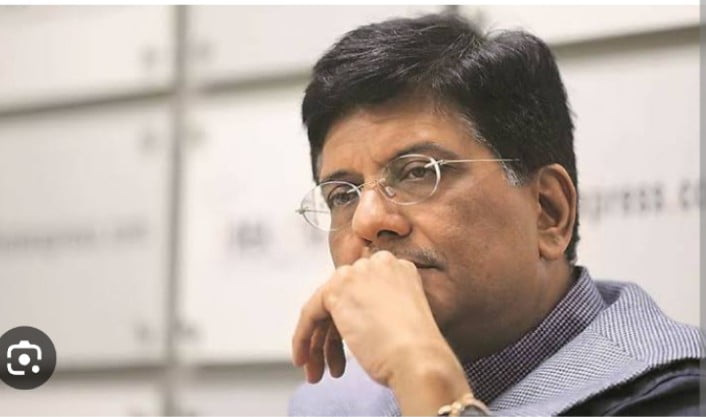In a proclamation laden with ambitious aspirations, Union Minister Piyush Goyal has articulated India’s resolute aim to propel its economy from a 3.5 trillion dollar stature to an awe-inspiring 35 trillion dollars within the span of 25 years, coinciding with the nation’s centennial celebration of independence. This audacious declaration was delivered at the NDTV Conclave in anticipation of the forthcoming G20 summit in Delhi.
Taking charge of the Ministry of Commerce & Industry, Goyal confidently asserted, “We are all optimists and young. The demographic composition of India, characterized by its vibrant youthfulness, positions us to augment the national economy by a colossal 30 trillion dollars in the impending years.”
Goyal’s unwavering optimism extends to the realm of international affairs, asserting, “We are poised to foster convergence. Emboldened by the sagacious leadership of Prime Minister Narendra Modi and the charismatic resonance he commands among global leaders, I remain sanguine in our capacity to catalyze significant geopolitical initiatives.”
This proclamation hearkens back to 2018, when Prime Minister Modi pledged the realization of a 5 trillion-dollar economy by 2025. At the recent BRICS summit, he reiterated his confidence in India’s imminent ascension to a 5 trillion-dollar economic status.
Union Minister Hardeep Puri concurred with the assessment of the nation’s economic vitality, drawing attention to oil consumption metrics as corroborative indicators. “India’s exorbitant surge in fuel consumption, towering threefold above the global average, serves as an incontrovertible barometer of our economic vitality,” Puri remarked at the NDTV Conclave.
Puri further accentuated India’s transformative journey, noting, “From scaling the rungs to emerge as the fifth-largest economy globally, India’s trajectory points towards an ascent to a 10 trillion-dollar economy. The eminent investment firm, Morgan Stanley, prognosticates India’s future mirroring the progression that China traversed.”
Echoing this sentiment, Amitabh Kant, a prominent member of the government think tank Niti Aayog and the G20 Sherpa, emphasized that India now occupies the coveted rank of the world’s fifth-largest economy and is steadfastly steering toward securing the third-largest standing.
Kant spotlighted the nation’s comprehensive achievements, affirming, “We have facilitated pervasive access to potable water, erected essential sanitation infrastructure, and administered vaccines to a staggering 2.2 billion individuals during the pandemic. The past seven to eight years have borne witness to prodigious accomplishments. What typically would have taken India half a century to accomplish, we have realized within this brief span.”
Moreover, Goyal underscored the necessity for the nation’s leadership to transcend entrenched paradigms, encouraging a departure from the conventional thought milieu of establishments such as Khan Market and Lutyens Delhi. He advocated for a shift toward holistic thinking encompassing the aspirations of villages, the impoverished, and the broader populace, reinforcing that the essence of development must percolate to the common man.
This fervent declaration reflects the ongoing transformation of India’s political landscape, culminating in an ethos of bottom-up decision-making and a commitment to equitably disseminating the fruits of progress to the masses.







